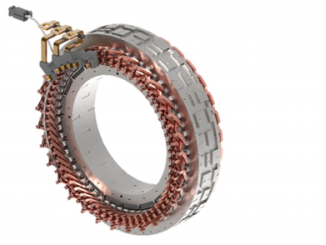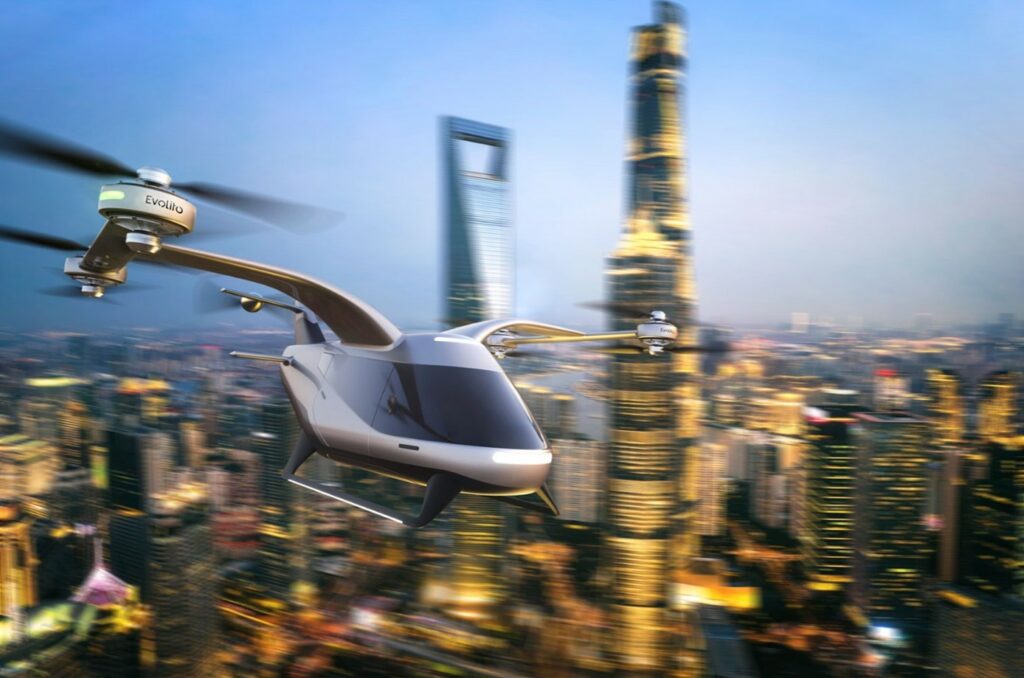
Attendees at this summer’s Farnborough AirShow, always a showcase for innovative technology in aviation held every two years in the UK, got a peek at the latest developments in e-aviation from Evolito, The UK company was spun out in 2021 by YASA, a pioneer of automotive axial-flux electric motors acquired by Mercedes-Benz in July of that year, to exclusively commercialize next-generation electric motor technology for the aerospace market.
Centered around its high-torque axial flux motor designs, new and increasingly more power-dense models of its permanent-magnet motors, full e-propulsion systems and even applying them to hydrogen-powered flight are all part of the progress. Beginning with 15 employees in 2021, Evolito now has over 200 staff busy developing their aviation-specific solutions.

A key new staffer is Marc Holme, who with his 24-year career in aviation steps into the role of CTO to lead the technological advancement and future direction of the axial-flux e-motor and propulsion product line. Previously, he was Senior Director of Engineering at Collins Aerospace and has extensive experience leading numerous aircraft system electrification programs.
His appointment follows a remarkable year for Evolito. In December, it received Design Organisation Approval from the UK Civil Aviation Authority for its electric propulsion system products. Collaborations are in progress with several OEM partners to develop motors and propulsion systems for a range of eVTOL, urban air mobility and fixed-wing applications with a series of customer test flights anticipated later this year. In one such effort, it works with Cranfield Aerospace Solutions to provide motor and inverters for its hydrogen aircraft demonstrator, known as the Fresson project.
Motors in the lineup
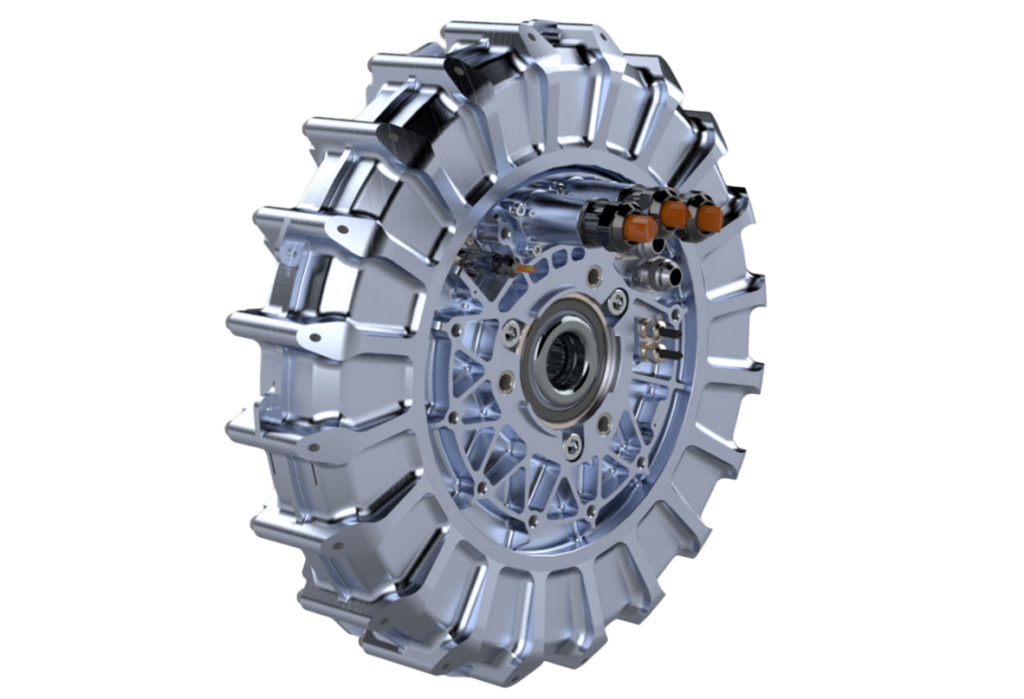
According to Evolito, their axial flux motors are the smallest and lightest in their performance class. They use low volumes of dense materials to yield higher torque and power densities, particularly at speeds best suited to propulsion. The motors are designed to compete with legacy radial flux motor technology that has been a barrier to the electrification of the aerospace market. Their axial flux technology is yolkless and coupled with a segmented magnet architecture to reduce weight and increase performance. The motors are smaller, lighter and can be four times more power dense than radial flux designs, making them suited well to the emerging zero-emissions aviation market. Their axial-flux technology requires up to 75% less iron, less copper and fewer permanent magnets than typical radial topologies. Designs include both 1×3 and true 2×3 phase variations, to allow for increased safety.
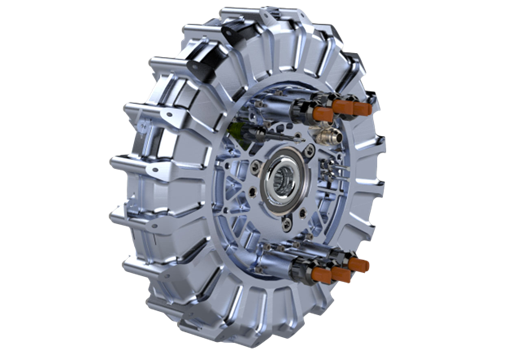
Partnering with Cranfield Aerospace for hydrogen-powered flight
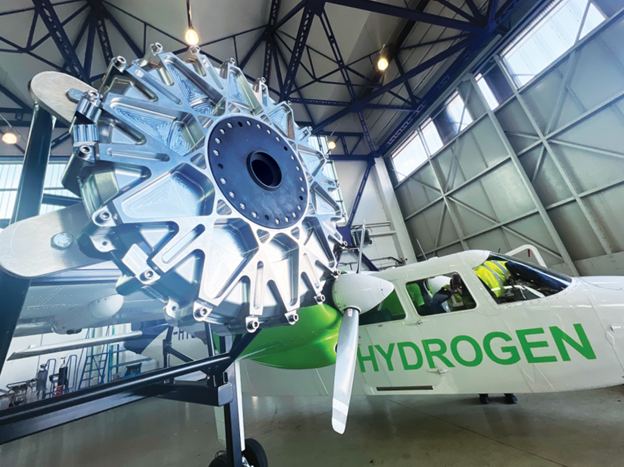
In a project begun last year, Evolito has joined forces with Cranfield Aerospace to supply axial flux electric motors and inverters for its hydrogen-powered aircraft demonstrator – Project Fresson, an effort which showcases UK innovation applied to aviation. Other technology collaborators on the project are Reaction Engines and Ricardo.
“Evolito’s revolutionary motor isn’t just lighter and more efficient, it’s also an extremely compact solution that has allowed CAeS to integrate and package the technology efficiently, as part of the 240kW Fresson fuel-cell propulsion system that has been packaged within the Islander engine nacelle,” notes Rob Marsha, director of engineering for CAeS.
“It’s great to see our D1500 motors, powering Cranfield’s hydrogen electric aircraft,” adds Mukesh Patel, chief engineer at Evolito. “The Fresson project is the first application showcasing our high redundancy 2×3 phase direct drive electric motor, providing industry leading torque & efficiency to the aircraft.”
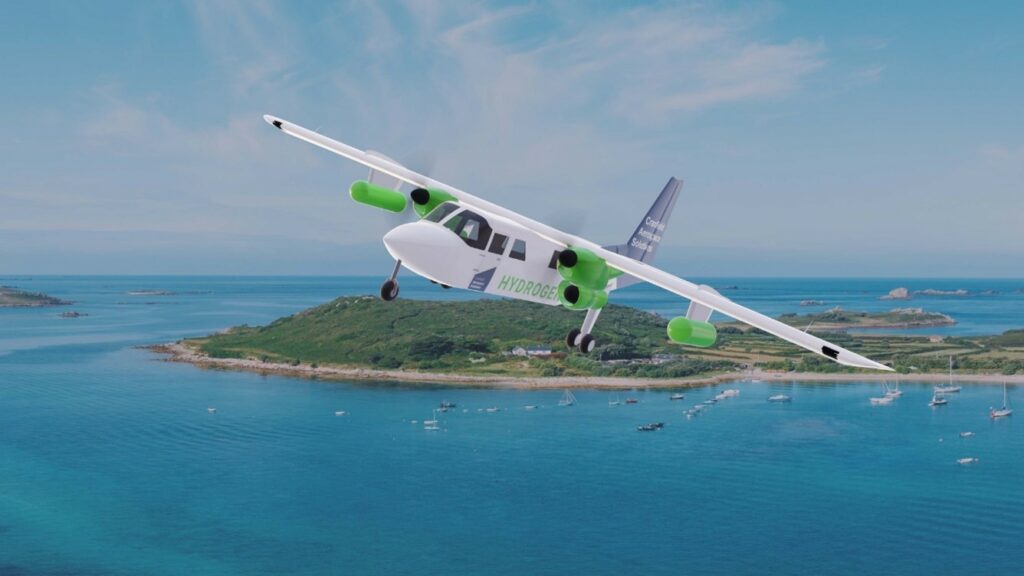
Cranfield Aerospace Solutions is a prolific pioneer in hydrogen aircraft technology. Based in the UK, it is transforming a standard Britten-Norman Islander aircraft to use hydrogen propulsion. The project aims to prove that hydrogen aircraft are a viable, sustainable solution for aviation and help advance the development of commercial, certified hydrogen planes.
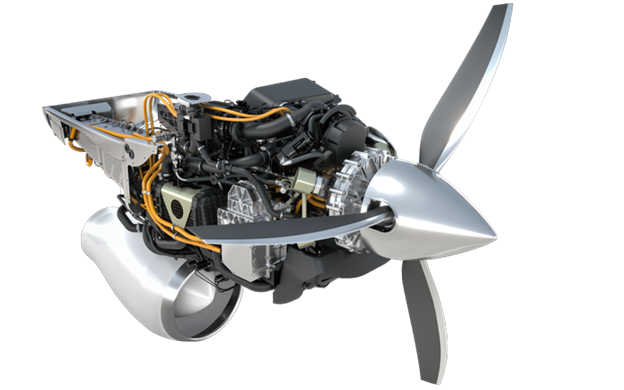
For more info, see www.evolito.aero, www.cranfieldaerospace.com.



